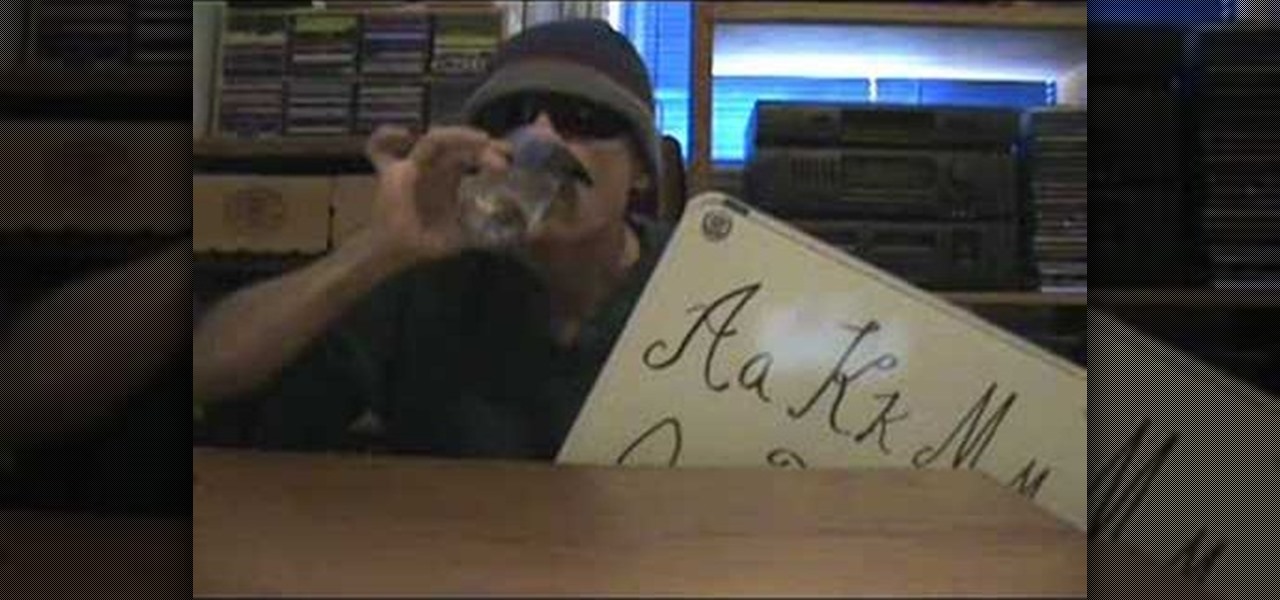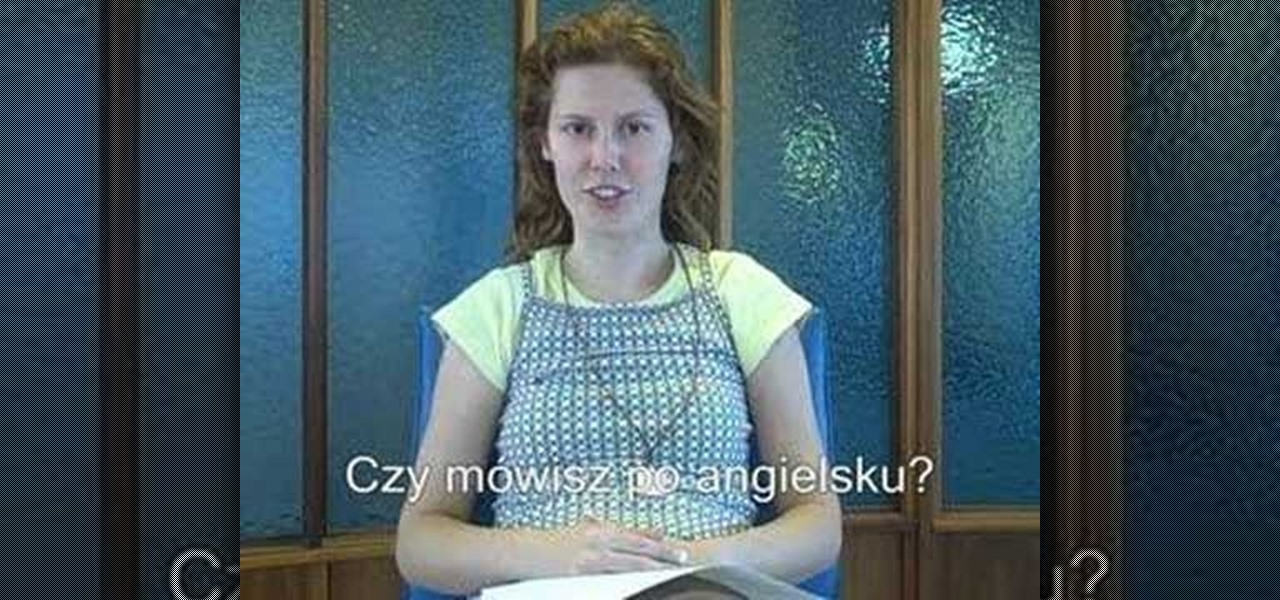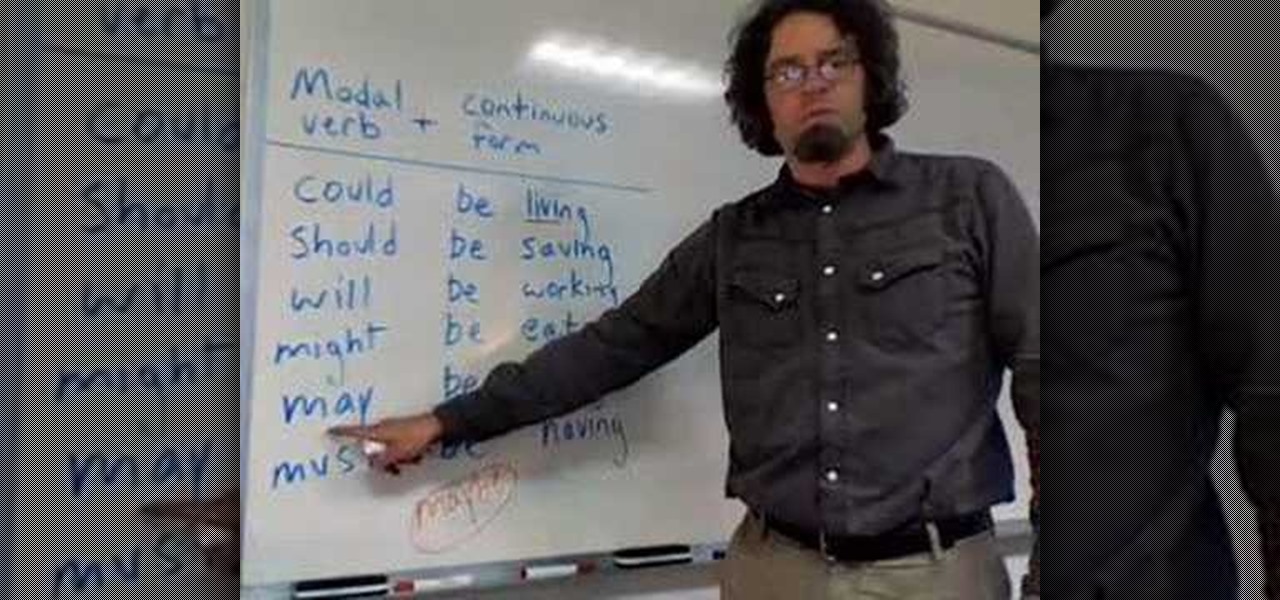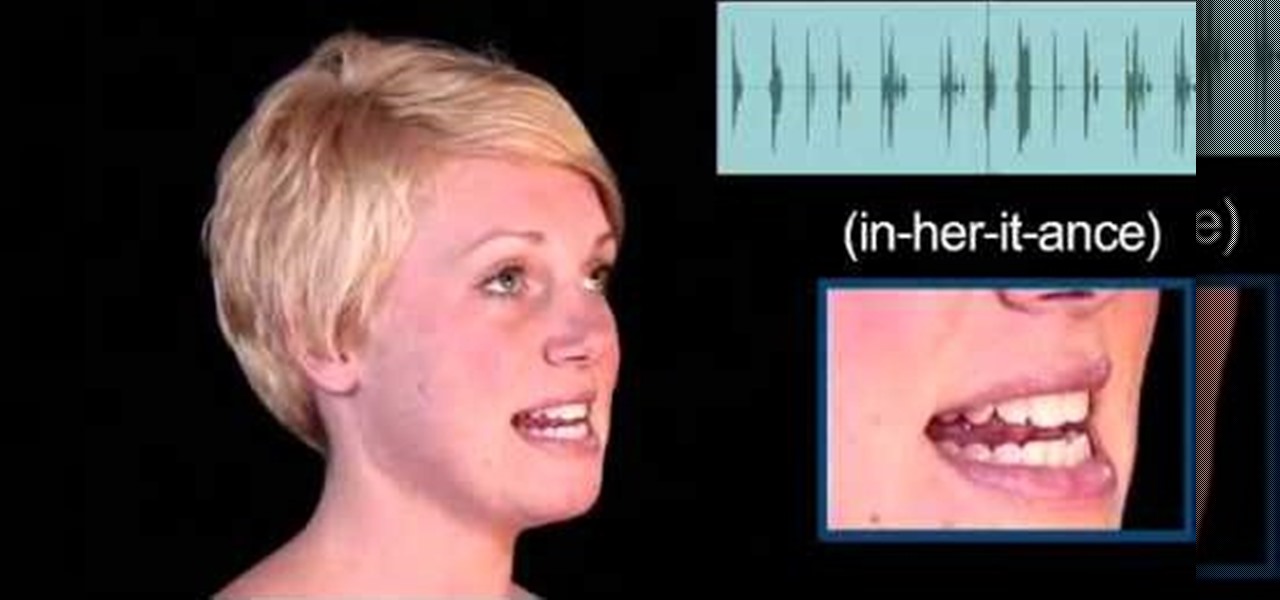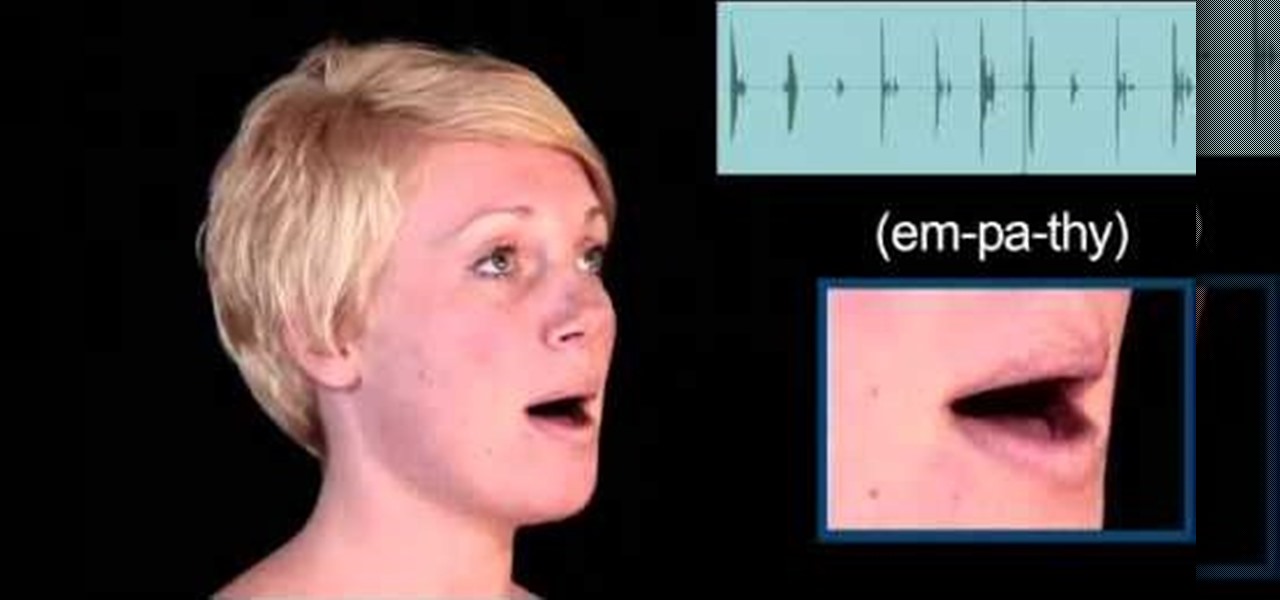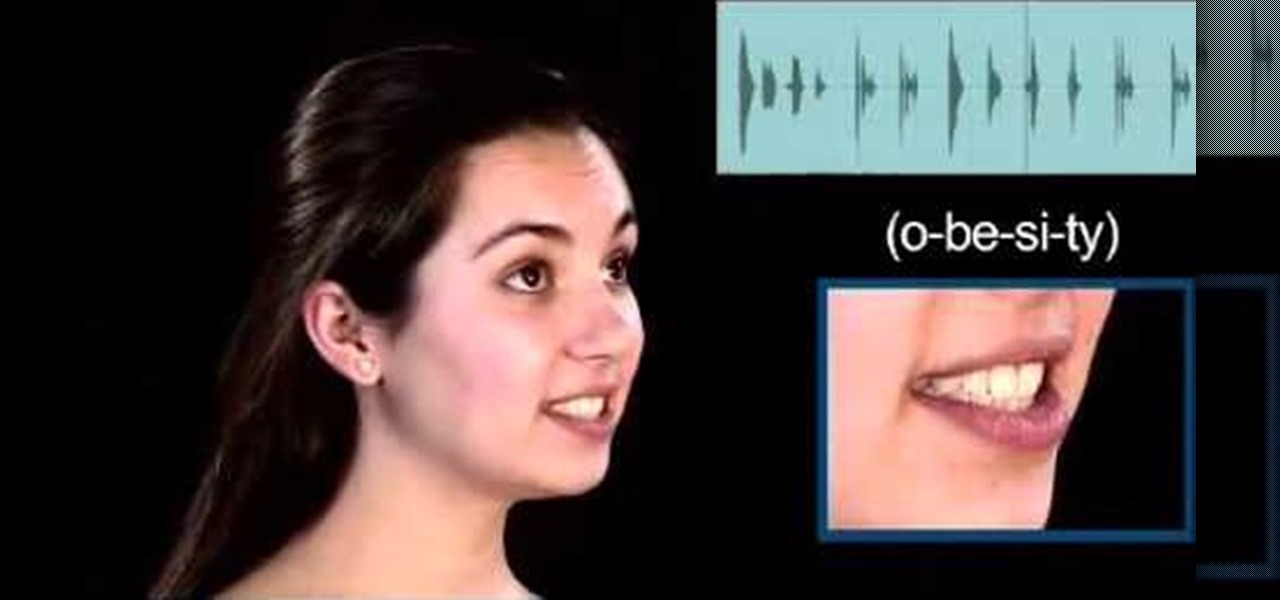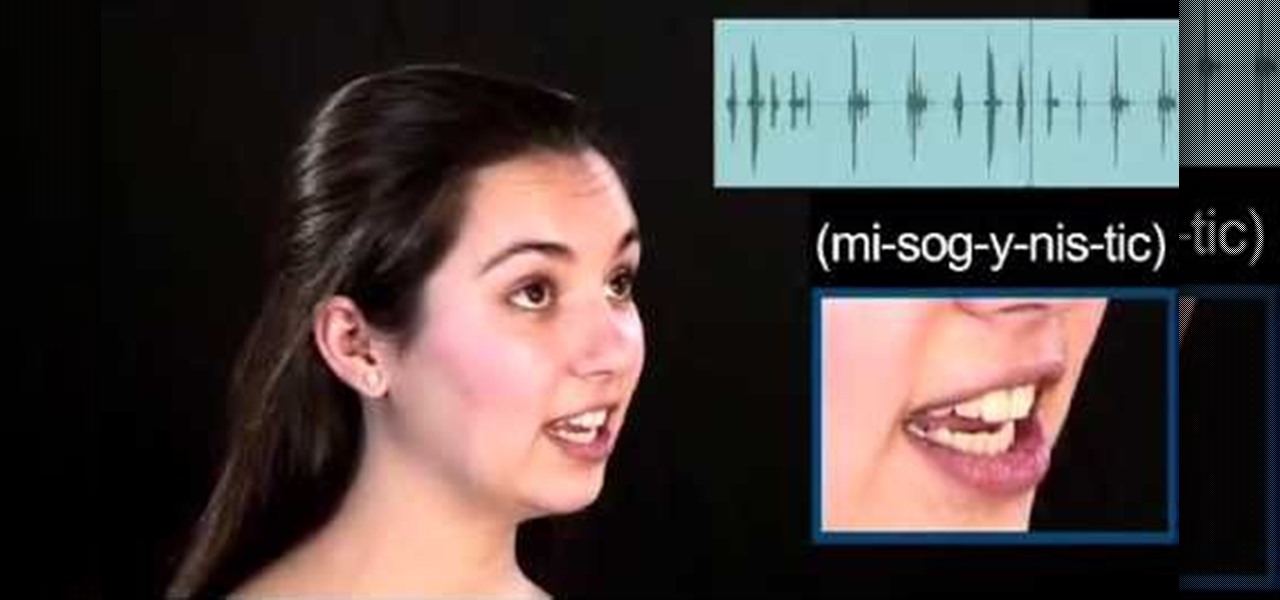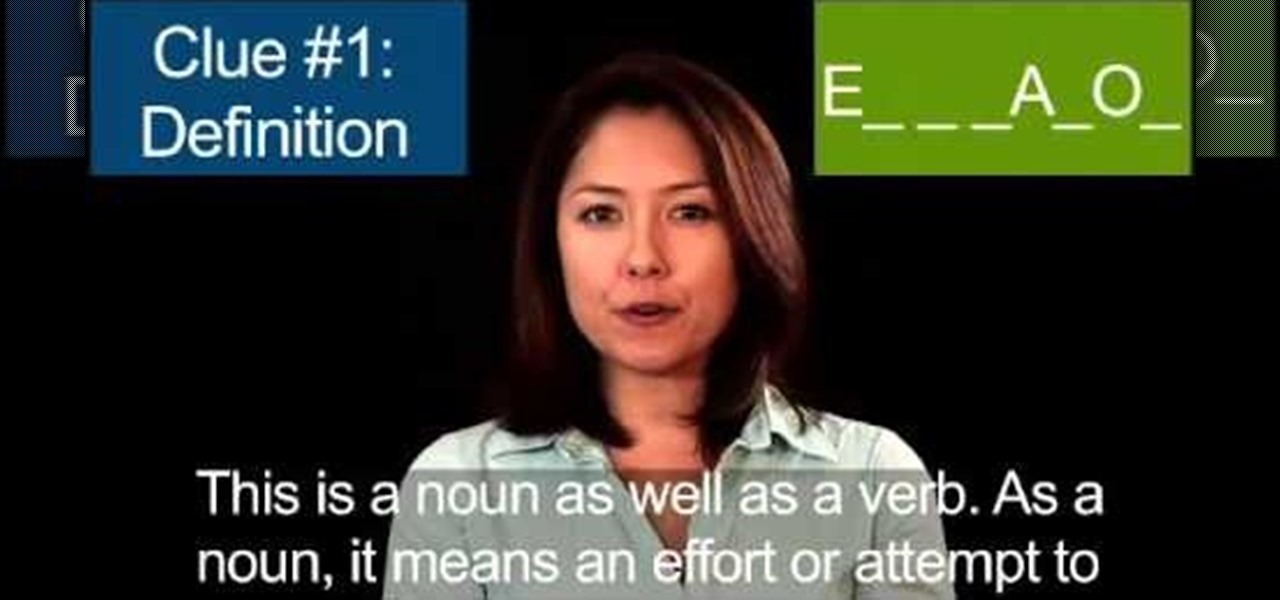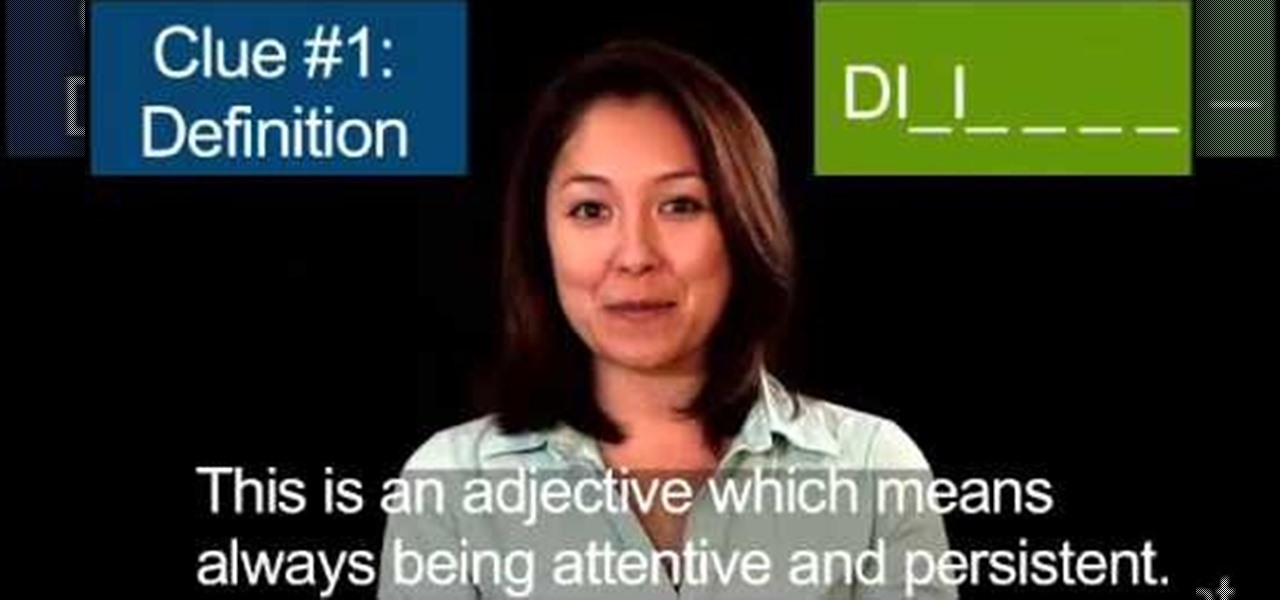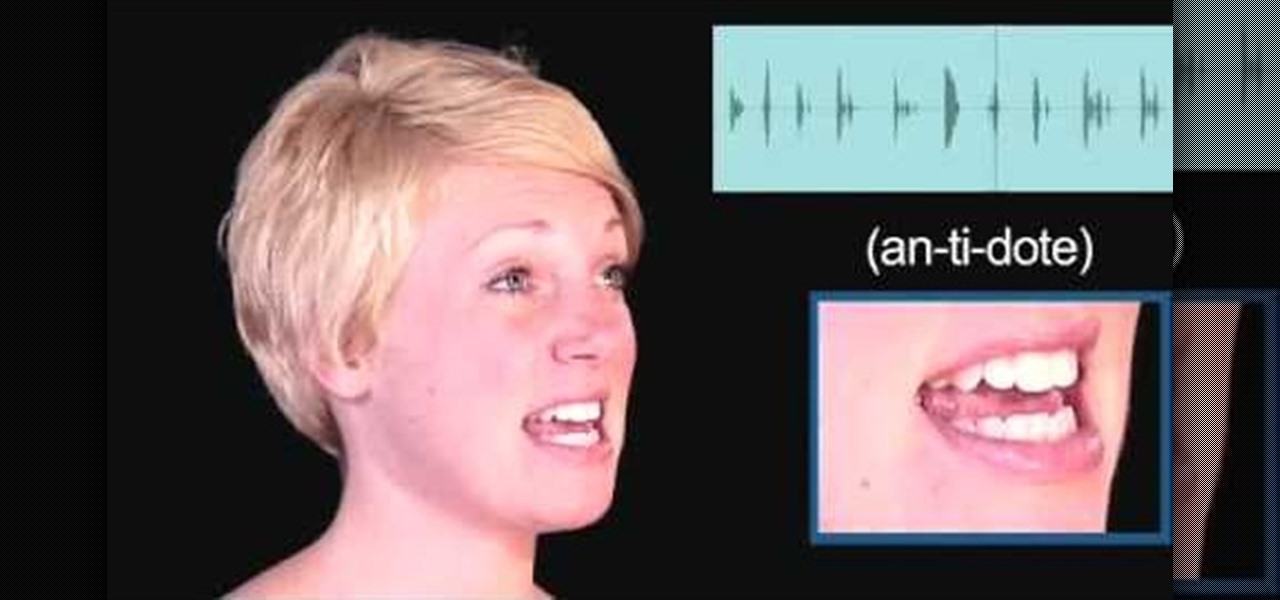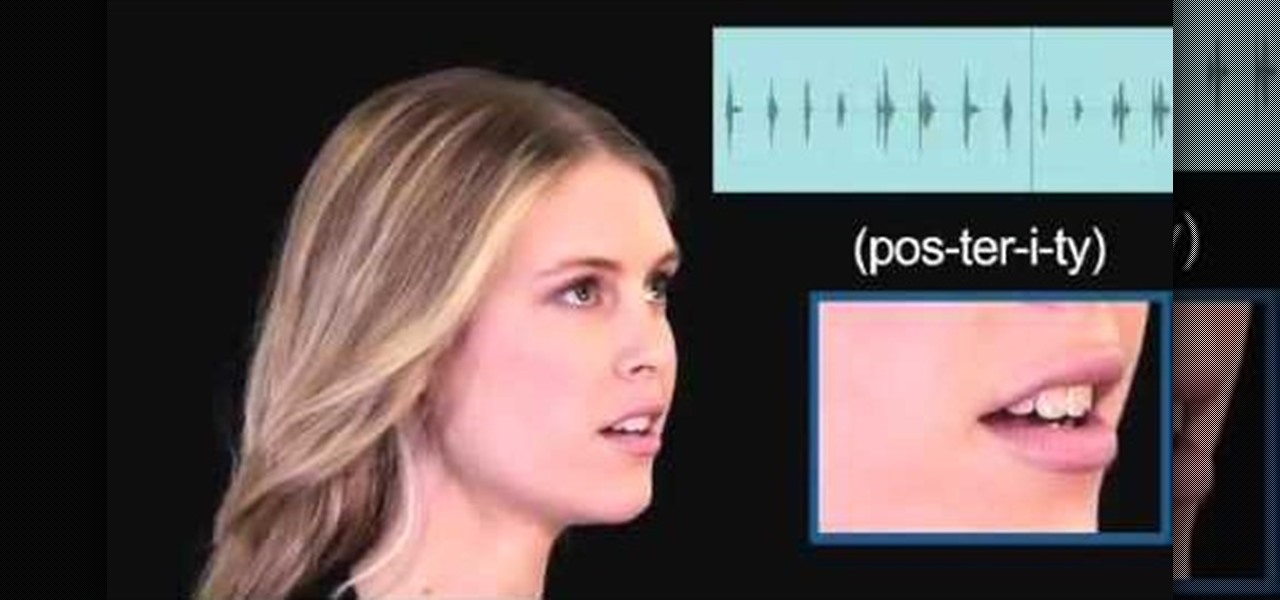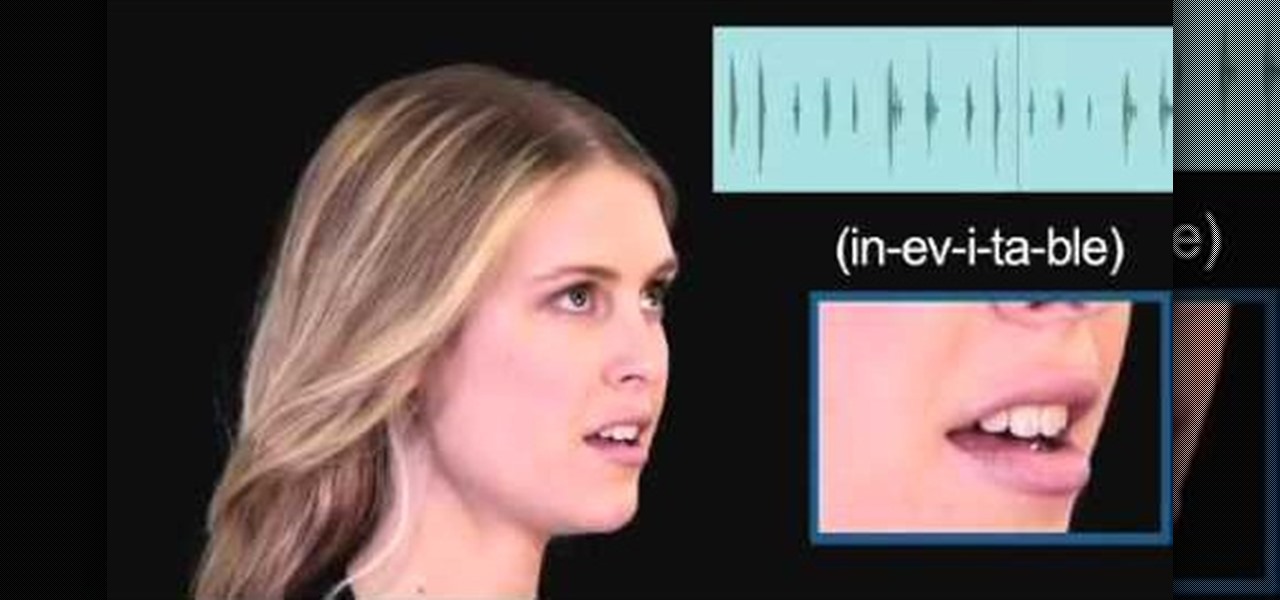
This clip demonstrates a left-leaning decrease sometimes used in knitting. It is usually called the "pass slipped stitch over" decrease (PSSO), or the K1, SL1, PSSO (knit one, slip one, pass slipped stitch over). In this clip, it's shown in the English style. For complete, step-by-step instructions, and to get started using this stitch in your own knitting projects, take a look.
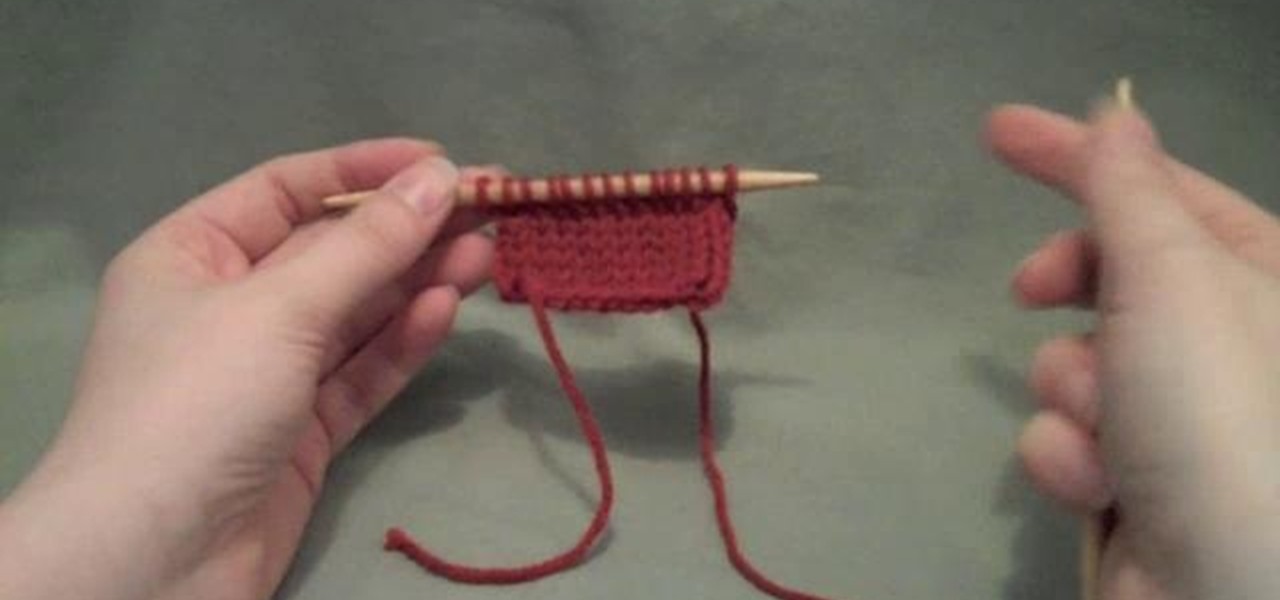
Looking to add to your repertoire of stitches? You've come to the right place. This free video knitting lesson will show you how to join two stitches together in the traditional English manner. For more information, including detailed, step-by-step instructions, and to get started joining stitches in your own kitting projects, take a look.
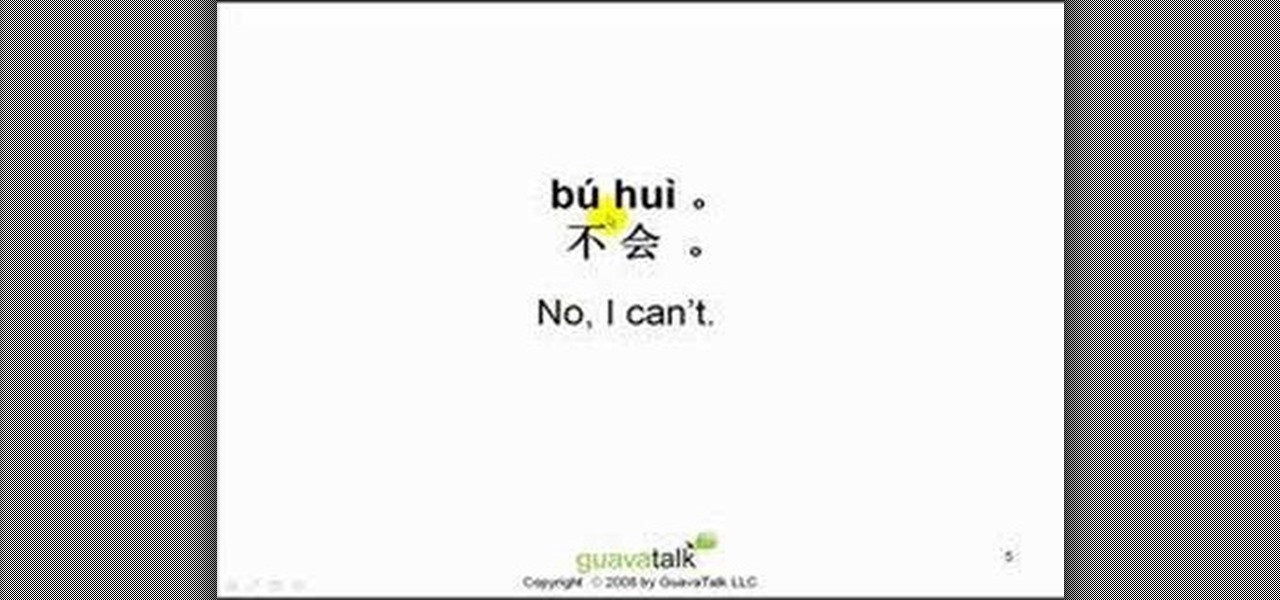
If you can find people who speak English in China, you'll probably get where you want to go faster. Memorize this basic Chinese phrase and feel a lot more secure once you get to China!

This pool shooting tutorial demonstrates how to control the cue ball using reverse English, opposite to the one that seems obvious. This will help line the ball up where you want it, preventing it from going too far down the table and allowing you to win the match.

In this free video language lesson from Sunny Park of Mahalo, we learn how to say, pronounce and write the Korean words for "I don't speak Korean" and "I don't speak English." For details, and to get started using this handy Korean phrase yourself, watch this guide for Korean language learners.
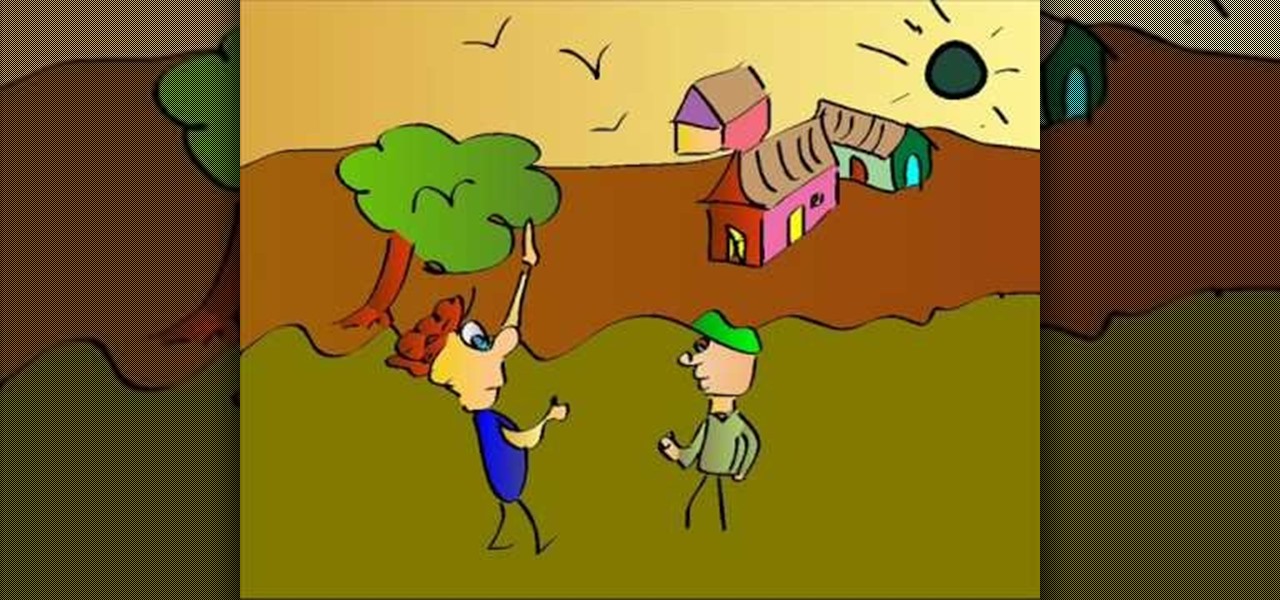
In this video, we learn how to ask "is that your house?" in Hindi. The first word you need to learn is "daily" which is pronounced just how "rose" is in English. The next phrase is the female version of "I go to school", this is said just like "main school jatti hun" in English language. The phrase "I come to the library" is said like "main library aati hun" in English. Go is said "jaata" and "come" is said "aata". These are easy to learn and will prepare you to say the phrase "is that your h...

From Over the Kitchen Counter, another amazing recipe - this time making delicious English cream scones. Make this delicious delite for a morning treat... Goes great with hot homebrewed coffee! To complete this recipe, you will need the following ingredients:

Check out this Russian language tutorial video that goes over the Russian letters that look and sound like their English counterparts. Master the Russian alphabet by learning a few of its intricacies with Rusky Ed. Learn the Russian alphabet with this instructional language video and soon you'll be able to move on to more advanced Russian lessons!

Throw-induce English is an important consideration when aiming a bank shot. Learn how to perform this technique and improve your pool game.

Check out this short "how-to" guide to drawing and shooting the English Warbow.

Learn how to say "Do you speak English?" in Polish.

Learn how to say "Do you speak English?" in Spanish.

Just having a bubble bath - laugh , how many times do I say your and look at the monitor - hopping pot - a lot. Check out this instructional English language video for a lesson in rhyming using Cockney slang. Rhyming slang is a form of slang in which a word is replaced by another word or term that rhymes with it. Watch this language tutorial and start incorporating some Cockney slang into everyday conversations.

In this language tutorial video, Phil Rosenbaum interviews Australians about their favorite Aussie slang phrases. In Australia, of course the official language is English, but Australians have a rich and colorful array of expressions and slang words that they use. Check out this instructional language video and learn the meanings of several Aussie slang phrases.

Check out this instructional language video to learn how to understand some basic Texas slang phrases. This tutorial video provides definitions of some everyday slang phrases. Practice your Texas slang with this how to video and improve your understanding of slang in English.

Some modal verbs can be put in front of the continuous form to express some present action that is or isn't happening. To make the past tense for each, use "have been" instead of "be."

This video shows irregular verbs in the simple form, the past tense, and as past participles. I hope this helps my students remember how these verbs change. It might also help with pronunciation.

In this video an American English teacher shows the difference between subject and object pronouns.

Today's word is "entrepreneur". This is a noun which means someone who owns and manages a business, taking on financial risks to do so.

Today's word is "queue". This is both a verb and a noun. As a noun, it means a line of people waiting their turn.

Today's word is "inheritance". This is a noun which means an asset such as money received from someone, often one's parents or relatives, after their death.

Today's word is "empathy". This is a noun which means the capacity or ability to understand the feelings of people.

Today's word is "obesity". This is a noun which means excessive fatness.

Today's word is "nuance". This is a noun which means a subtle degree of difference in meaning and expression. For example, you can say, "To truly understand the nuances between synonyms, you often have to see how those similar words are used in various situations."

Today's word is "misogynistic". This is an adjective which means prejudiced against women.

Today's word is "reticent". This is an adjective which means not revealing one's thoughts, or being reserved.

Today's word is "hierarchy". This is a noun which means a system of people, organizations, or things that have ranks.

Today's word is "facade". This is a noun which means a face of a building or a superficial appearance.

Today's word is "alumni". This is a noun and the plural form of "alumnus" which means a graduate of a specific school.

Today's word is "usher". This is both a noun and a verb. As a verb, it means to escort.

Today's word is "eerie". This is an adjective which means uncanny or weird.

Today's word is "scenario". This is a noun which means an imagined sequence of events.

Today's word is "propaganda". This is a noun which means misleading information or ideas to promote a certain cause.

Today's word is "endeavor". This is a noun as well as a verb. As a noun, it means an effort or attempt to accomplish something. As a verb, it means to strive or attempt.

Today's word is "diligent". This is an adjective which means always being attentive and persistent. Can you guess what the word is?

Today's word is "fervor". This is a noun which means great enthusiasm.

Today's word is "antidote". This is both a noun and a verb. As a noun, it means a medicine to counteract a poison.

Today's word is "posterity". This is a noun which means future generations collectively.

Today's word is "inevitable". This is an adjective which means unable to be avoided.

Today's word is "hyperbole". This is a noun which means an exaggerated statement.









